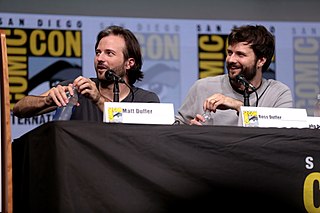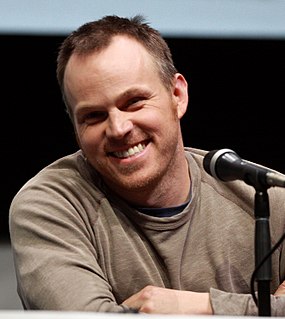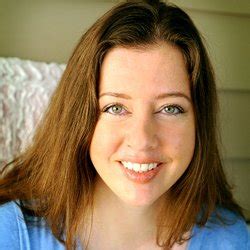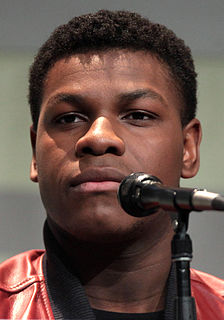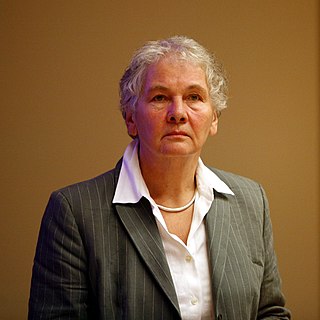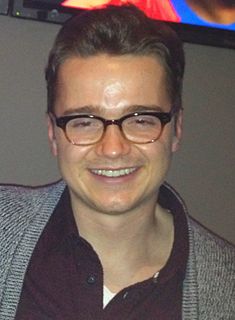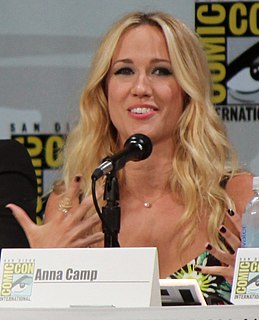A Quote by Kelly Link
Most of the things that I remember from childhood wouldn't make a particularly good story: rescuing worms during rainstorms, our schnauzer attacking a wheel of cheese when someone dropped it during dinner, my parents tricking us into riding Space Mountain at Disney World (we thought it was an educational people-mover kind of ride), playing Star Wars (I got to marry Harrison Ford and my sister married Luke Skywalker) in first and second grade. On the other hand, we always had lots of interesting babysitters--seminary students and friends of my parents--who told really good ghost stories.
Quote Topics
Always
Attacking
Cheese
Childhood
Dinner
Disney
Dropped
Educational
First
Ford
Friends
Ghost
Ghost Stories
Good
Good Story
Got
Grade
Had
Hand
Interesting
Kind
Lots
Luke
Make
Married
Marry
Most
Mountain
My Sister
Other
Our
Parents
Particularly
People
Playing
Rainstorms
Really
Remember
Ride
Riding
Second
Seminary
Sister
Someone
Space
Star
Star Wars
Stories
Story
Students
Things
Thought
Us
Wars
Wheel
World
Worms
Related Quotes
The first thing our Chapman screenwriting professors taught us was that all stories share one thing in common: there is a protagonist, and that protagonist has a goal that he or she has difficulty achieving. Does Luke Skywalker become Luke Skywalker if he doesn't get pulled into the Death Star, if his best friend isn't turned into carbonite?
For me, there were a few things in the Spider-Man comics that I thought were really interesting. There's this story about Peter's parents and where he came from, and I thought that it was really interesting to explore the emotional consequence of someone whose parents had left them, at a very young age.
'Star Wars: Episode IV - A New Hope' (1977) is probably the most influential film of my generation. That work was the personification of good and evil and the way it opened up the world to space adventure, the way westerns had to our parents' generations, it left an indelible imprint. So, in a way, everything that any of us does is somehow directly or indirectly affected by the experience of seeing those first three films.
In the eulogy by the graveside, I told everyone how my sister and I used to sing to each other on our birthday. I told them that, when I thought of my sister, I could still hear her laughter, sense her optimism, and feel her faith. I told them that my sister was the kindest person I;ve ever known, and that the world was a sadder place without her in it. And finally, I told them to remember my sister with a smile, like I did, for even though she was being buried near my parents, the best parts of her would always stay alive, deep within our hearts.
I don't really date. I have a weird vision of relationships because my parents have known each other since second grade, and they got married right out of college. I've always thought that's what it's supposed to be like, and if it's not, then I don't want to waste my time on it. Even when I was 14, I was like, 'I'm not gonna marry this person. What's the point of doing it?' It's not me being naive. I just know what it's supposed to be like, and I think until I feel that, I cannot be bothered.
Too many writers think that all you need to do is write well-but that's only part of what a good book is. Above all, a good book tells a good story. Focus on the story first. Ask yourself, 'Will other people find this story so interesting that they will tell others about it?' Remember: A bestselling book usually follows a simple rule, 'It's a wonderful story, wonderfully told'; not, 'It's a wonderfully told story.'
My parents were kind of over protective people. Me and my sister had to play in the backyard all the time. They bought us bikes for Christmas but wouldn't let us ride in the street, we had to ride in the backyard. Another Christmas, my dad got me a basketball hoop and put it in the middle of the lawn! You can't dribble on grass.
We hug, but there are no tears. For every awful thing that's been said and done, she is my sister. Parents die, daughters grow up and marry out, but sisters are for life. She is the only person left in the world who shares my memories of our childhood, our parents, our Shanghai, our struggles, our sorrows, and, yes, even our moments of happiness and triumph. My sister is the one person who truly knows me, as I know her. The last thing May says to me is 'When our hair is white, we'll still have our sister love.
The only lie I really remember from my adolescence was when I was in sixth grade and I was dropped off with a couple of friends at the movie theater to go see a movie, I can't remember which one it was, and we went to go see this movie instead that was rated R. That was sort of a defining moment, that was probably the first time I had ever lied to my parents about something.

